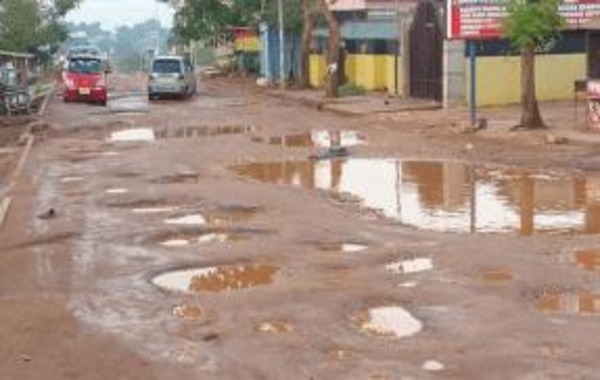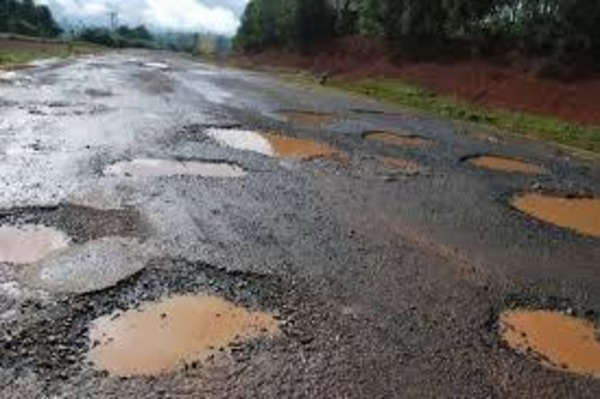A democratic nation’s true pulse is not measured by the speeches of its leaders, but by the unbridled voice of its people and the fearless ink of its press.
The Techiman-Bole-Wa highway, a vital economic artery connecting Ghana’s middle and northern regions, has deteriorated into a punishing trial for travellers and traders.
What should be a journey of commerce and connection is now a test of endurance, characterised by deep potholes, eroded shoulders, and unpredictable dust bowls that transform into slippery mudslides with every rainfall.
The deplorable state of the road severely impacts daily life. It inflates transportation costs, damages vehicles, and prolongs travel time, stifling economic activity and posing significant safety risks.
Former Majority Leader and Suame MP, Osei Kyei-Mensah Bonsu, on April 9, 2021, revealed that the then-NPP government secured US$250 million to reshape Bole-Sawla-Wa road and US$150 million was received as the first part of the loan.
However, residents continued to pour out their frustrations, demanding immediate improvement in road infrastructure, especially the Sunyani-Techiman-Wa road.
On April 2, 2025, the government, through the Minister for Roads and Highways, Kwame Agbodza, acknowledged the crisis and charged the Ghana Highways Authority to undertake engineering studies and designs for sections of the corridor that are not currently under construction in preparation for the upcoming works under the “Big Push” initiative.
Despite announcements and campaigns, there is a visible delay in contractors moving fully to the site to begin substantive work.
A postgraduate student at UEW, Ernest Bokunoba Kuulale, who travels on the road regularly, expressed his frustrations.
“Travelling home from school is a nightmare. A twelve-hour trip now takes eighteen to twenty-two hours. We’re constantly anxious about accidents or our buses breaking down in the middle of nowhere,” he said.
Another regular user of the road at the Department of Biology Education, UEW, Mr. Isaac Tantie described the road as a disgrace to the leaders.
“This road is a major barrier to academic collaboration and discourages professionals from accepting postings here. Our leaders must do something about it, or else the people will lose confidence in them.”
The Member of Parliament (MP) for the Daffiama-Bussie-Issa Constituency in the Upper West Region, Dr. Sebastian N. Sandaare, in March 2025 made an urgent appeal to President John Mahama, through the Minister responsible for Roads and Highways, to fix the Wa-Bole-Techiman Road.

Without mincing words, the lawmaker said, “Mr. Speaker, if this road is not fixed immediately, it will slow down economic activities, increase transportation costs, inflate the prices of goods and services, and deter investments and tourism. The longer we delay, the more these challenges will escalate,” the lawmaker said.
“Mr. Speaker, one of the most distressing consequences of this poor road network is the increasing spate of accidents. Common occurrences include tyre bursts and vehicle collisions as drivers attempt to dodge potholes.
The cumulative effect is that this road is both unsafe and unbearably long to travel. A journey that should take less than 12 hours -from Accra to Wa- now takes an average of 18 hours or more.
“Transport operators, including the State Transport Company (STC), are gradually abandoning the route, leaving many communities stranded,” he reaffirmed.
The Techiman, Bole, Wa-Hamile road forms part of the N12 trans-ECOWAS highway linking the Upper West and Savannah Regions to the Southern part of Ghana and neighboring Burikina Faso and la Co’devoir.
The promise of a new road is a beacon of hope, but for those navigating this hazardous corridor daily, action cannot come soon enough.
The economic vitality of the region depends on this crucial link being restored to a safe and motorable state.
Source: Jacob Booyere (Journalism and Media Studies student-University of Education, Winneba (JMS-UEW))



